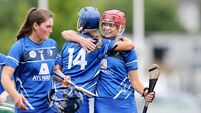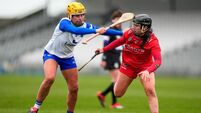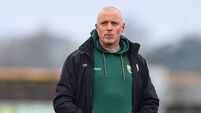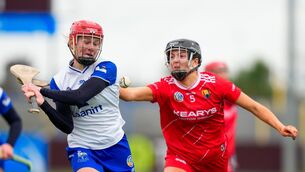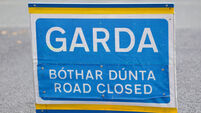The GAA’s Quiet(est) Man
EVERY interview has cause and context. And there are only two reasons this one is taking place.
Mike McCarthy wants to seal a few whisper-draughts. And his bursting pride in his one-year-old son. He’s fighting with himself on the latter.







